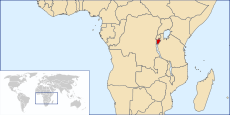
The Burundian Civil War was a civil war in Burundi lasting from 1993 to 2005. The civil war was the result of longstanding ethnic divisions between the Hutu and the Tutsi ethnic groups. The conflict began following the first multi-party elections in the country since its independence from Belgium in 1962, and is seen as formally ending with the swearing-in of President Pierre Nkurunziza in August 2005. Children were widely used by both sides in the war. The estimated death toll stands at 300,000.
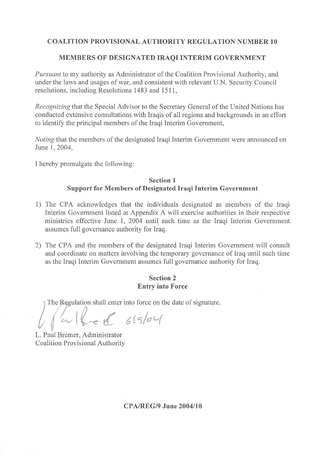
United Nations Security Council resolution 1546, adopted unanimously on 8 June 2004, after reaffirming previous resolutions on Iraq, the Council endorsed the formation of the Iraqi Interim Government, welcomed the end of the occupation and determined the status of the multinational force and its relationship with the Iraqi government.

The United Nations Integrated Office in Burundi (BINUB) was established by the United Nations Security Council to support the government of Burundi in its efforts towards long-term peace and stability and to replace the work of United Nations Operation in Burundi (ONUB). Its mandate was scheduled to begin on 1 January 2007 for an initial 12 months, and its creation and mission was as a result of recommendations in a report by the secretary-general.
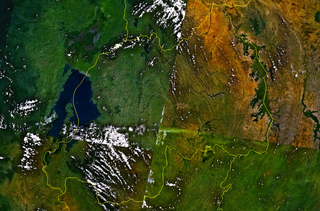
United Nations Security Council resolution 893, adopted unanimously on 6 January 1994, after reaffirming resolutions 812 (1993), 846 (1993), 872 (1993) and 891 (1993) on Rwanda, the Council noted that the situation in Rwanda could have implications for neighbouring Burundi and authorised the deployment of a second military battalion of the United Nations Assistance Mission for Rwanda (UNAMIR) to the demilitarised zone.

United Nations Security Council resolution 918 was adopted without a vote on 17 May 1994. After reaffirming all resolutions on the situation in Rwanda, particularly resolutions 872 (1993), 909 (1994) and 912 (1994), the Council expressed its alarm and condemnation at the continuing large-scale violence, and went on to impose an arms embargo on the country and authorise an expansion of the United Nations Assistance Mission for Rwanda (UNAMIR).

United Nations Security Council resolution 929, adopted on 22 June 1994, after recalling all resolutions on Rwanda, including 912 (1994), 918 (1994) and 925 (1994), the council authorised, under Chapter VII of the United Nations Charter, the temporary establishment of a multinational operation in the country to assist in humanitarian efforts and protect refugees and displaced people, until the full deployment of the expanded United Nations Assistance Mission for Rwanda (UNAMIR).

United Nations Security Council resolution 1286, adopted unanimously on 19 January 2000, after reaffirming all resolutions and statements by the President of the Security Council on the civil war in Burundi, the council supported the efforts of former South African President Nelson Mandela in reaching a political settlement to the conflict in the country.

United Nations Security Council resolution 1371, adopted unanimously on 26 September 2001, after reaffirming resolutions 1244 (1999) and 1345 (2001) on the situation in the former Yugoslavia including Macedonia, the Council called for the full implementation of its Resolution 1345 concerning violence and terrorist activities in Macedonia and southern Serbia.

United Nations Security Council resolution 1383, adopted unanimously on 6 December 2001, after reaffirming all resolutions on the situation in Afghanistan, particularly Resolution 1378 (2001), the Council endorsed the Bonn Agreement signed the previous day concerning the transition period in the country following the U.S. invasion and preceding the establishment of permanent institutions.
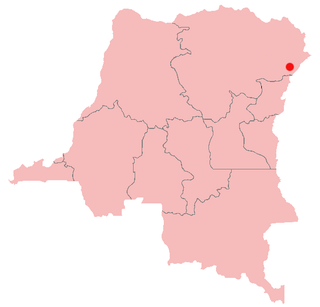
United Nations Security Council Resolution 1484, adopted unanimously on 30 May 2003, after recalling previous resolutions on the situation in the Democratic Republic of the Congo, the Council authorised Operation Artemis in Bunia, the capital of Ituri Province, amid the deteriorating security situation in the area.

United Nations Security Council resolution 1497, adopted on 1 August 2003, after expressing concern at the situation in Liberia, the Council authorised a multinational force to intervene in the civil war to support the implementation of a ceasefire agreement using "all necessary measures".

United Nations Security Council Resolution 1545, adopted unanimously on 21 May 2004, after recalling all resolutions on the situation in Burundi, particularly Resolution 1375 (2001), the council established the United Nations Operation in Burundi (ONUB) to bring about peace and national reconciliation in the country.

United Nations Security Council resolution 1565, adopted unanimously on 1 October 2004 after recalling all previous resolutions on the situation in the Democratic Republic of the Congo, extended the mandate of the United Nations Mission in the Democratic Republic of Congo (MONUC) until 31 March 2005 and authorised an additional deployment of 5,900 troops and police. It reaffirmed the commitment to respect the “sovereignty, territorial integrity and political independence [sic]” of Congo and States in the region.

United Nations Security Council resolution 1577, adopted unanimously on 1 December 2004, after recalling Resolution 1545 (2004) on the situation in Burundi, the Council extended the mandate of the United Nations Operation in Burundi (ONUB) for a period of six months until 1 June 2005.

United Nations Security Council Resolution 1959, adopted unanimously on December 16, 2010, after recalling resolutions 1719 (2006), 1791 (2007), 1858 (2008) and 1902 (2009), the Council established the United Nations Office in Burundi (BNUB) to replace the United Nations Integrated Office in Burundi (BINUB) as part of a scaled-down United Nations presence in the country for an initial period of twelve months, beginning January 1, 2011.

United Nations Security Council resolution 1602, adopted unanimously on 31 May 2005, after recalling resolutions 1545 (2004), 1565 (2004), 1577 (2004) and 1596 (2005) on the situation in Burundi, the Council extended the mandate of the United Nations Operation in Burundi (ONUB) for a period of six months until 1 December 2005.

United Nations Security Council resolution 1606, adopted unanimously on 20 June 2005, after reaffirming its support for the Arusha Peace Agreement regarding the situation in Burundi, the Council requested the Secretary-General Kofi Annan to begin negotiations on a truth commission and special chamber within the country's court system.
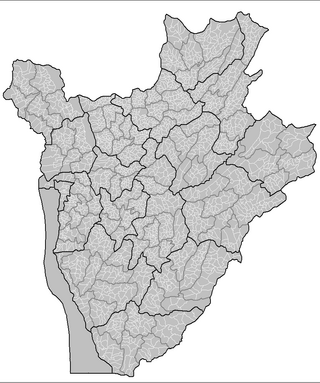
United Nations Security Council Resolution 1650, adopted unanimously on 21 December 2005, after recalling Resolution 1545 (2004) regarding the situation in Burundi, the Council extended the mandate of the United Nations Operation in Burundi (ONUB) until 1 July 2006.

United Nations Security Council Resolution 1719, adopted unanimously on October 25, 2006, after recalling resolutions on the situation in Burundi, including resolutions 1545 (2004), 1577 (2004), 1602 (2005), 1606 (2005), 1650 (2005) and 1692 (2006), the Council established the United Nations Integrated Office in Burundi (BINUB) for an initial period of one year to assist in the country's long-term peace and stability.
United Nations Security Council Resolution 1791 was unanimously adopted on 19 December 2007.
